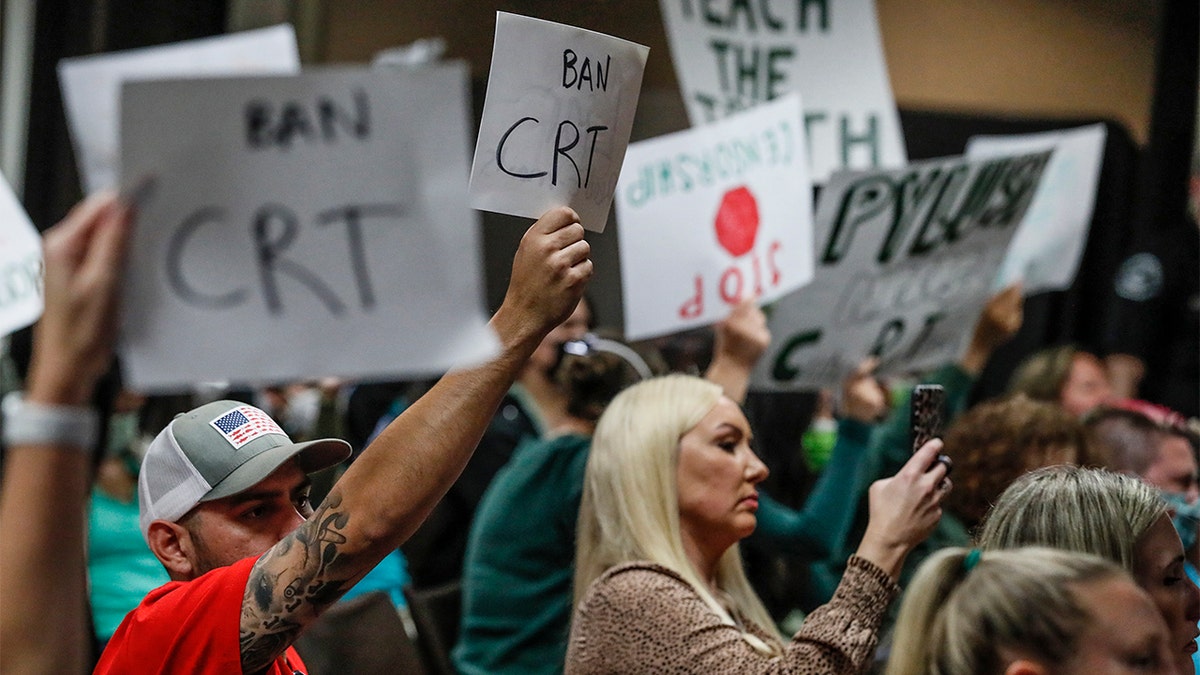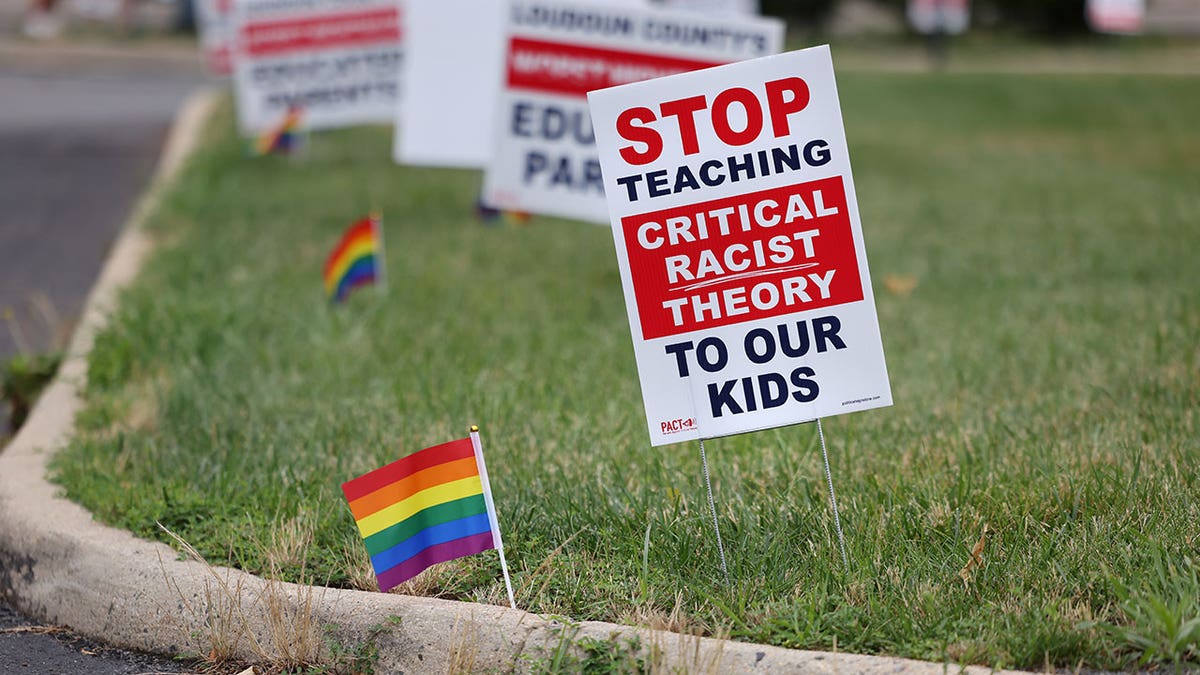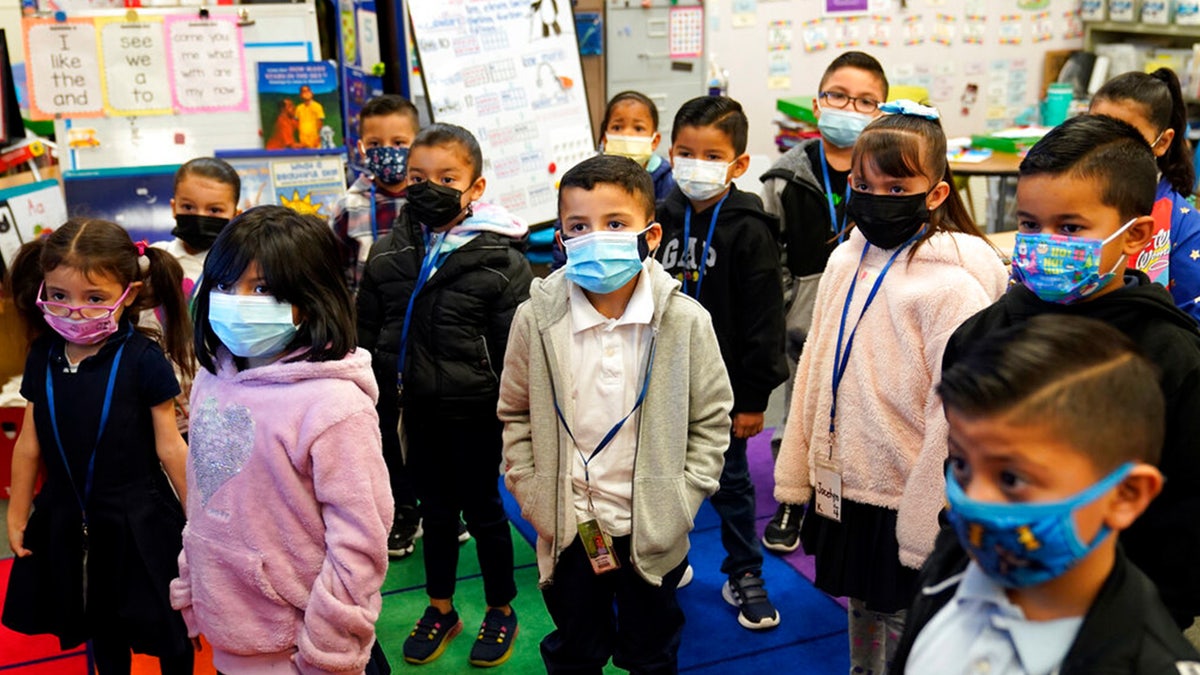Ohio lawmakers said critics are misleading the public about legislation opponents have dubbed the Buckeye State's version of the "Don't Say Gay" bill.
State Reps. Jean Schmidt and Rep. Mike Loychik introduced legislation that would ban classroom instruction on sexual orientation and gender identity from kindergarten to third grade, and then would allow age-appropriate discussion for older students. Critics have argued that bill is overly broad and would endanger LGBTQ students.
"This is not an attack on the LGBTQ community," Loychik, a Republican, told Fox News. It's about protecting "the innocence of our kindergartners when they go to school."
He said students don't need to focus on these concepts at that age. Older students could have these discussions as long as they're tailored to their grade level and the educators are well-trained in teaching that curricula, according to the bill.
SCHOOL SYSTEMS ARE ‘USURPING FAMILY RESPONSIBILITY,' BETSY DEVOS SAYS

An even mix of proponents and opponents to teaching Critical Race Theory are in attendance as the Placentia Yorba Linda School Board in Orange County, California, discusses a proposed resolution to ban it from being taught in schools. (Robert Gauthier/Los Angeles Times via Getty Images)
The bill "ensures that our students, no matter what their age is, are receiving an appropriate education that is free of the indoctrination, that is age appropriate," Schmidt, a fellow Republican, said. "Let's make sure that those concepts are taught at an appropriate age."
Loychik said he explained the bill to some constituents, who were supportive once they understood that it was aimed at the youngest classrooms.
But critics have said the bill is an attack on the LGBTQ community.
"Students deserve an education that addresses diversity, and this latest bill erases LGBTQ+ identity while putting these children at greater risk for bullying and harm," Columbus Mayor Andrew Ginther said in a statement last week. "It is bigotry in one of its ugliest forms."
Likewise, Columbus City Schools' superintendent called the legislation "discriminatory and hateful regulations."
Others called the bill broad.
"Ohio’s Don’t Say Gay Bill is more broad and vague than Florida’s bill, and includes grades K-12," Kathryn Poe, a spokesperson for the Equality Ohio, told the Columbus Dispatch.
A state school board member told the publication: "My interpretation is there can be no books of any kind that deal with any LGBTQ+ issues."
Schmidt told Fox News the bill "gets attacked because people are afraid" to be portrayed as opponents of the LBGTQ community.
"They really need to read the bill," she continued. "The bill is not a divisive bill."
The bill states: "With respect to a student in any of grades kindergarten through three," no public school may "teach, use, or provide any curriculum or instructional materials on sexual orientation or gender identity."
Violations could result in schools losing state funds or teachers losing their license.
The bill also states that public schools can't "teach, use, or provide for use by any student any curriculum, instructional material, or assignment designed to promote or endorse divisive or inherently racist concepts."
It specifically lists prohibited concepts, including critical race theory and the 1619 Project, an initiative historians have widely discredited that reframes American's founding and history around slavery.
The legislation also bans "any other concept that the state board of education defines as divisive or inherently racist."

Signs opposing Critical Race Theory line the entrance to the Loudoun County School Board headquarters, in Ashburn, Virginia, U.S. June 22, 2021. (REUTERS/Evelyn Hockstein) (REUTERS/Evelyn Hockstein)
It's up to parents to handle these issues with "their child because they know their child best," Schmidt told Fox News.
"For the school to put it into the child’s brain first is absolutely wrong," she added. "We are not there to indoctrinate our children. We are there to educate our children."
The bill would allow parents to file complaints with the state's board of education, but gives teachers and schools the right to defend themselves, according to Schmidt.
AHEAD OF MIDTERMS, PARENTS ARE FLEXING THEIR POLITICAL MUSCLES
Schools should prioritize teaching "how to write, how to spell, how to do simple math," concepts students are "lagging" in, Schmidt told Fox News.
Students, on average, fell five months behind in math and four months behind in reading by the end of the 2020-21 school year as a result of pandemic learning, according to a study by McKinsey and Company.
"We’ve decided to teach concepts that they can’t understand and take away from the opportunity to really teach our children appropriately," Schmidt said.

FILE: Kindergarteners wear masks while listening to their teacher amid the COVID-19 pandemic at Washington Elementary School on Jan. 12, 2022, in Lynwood, Calif. (P Photo/Marcio Jose Sanchez, File)
CLICK HERE TO GET THE FOX NEWS APP
Schmidt said that gender identity and sexual orientation could have a place in the classroom, but only at an appropriate age.
"It shouldn’t be taught for kindergartners because even high schoolers or junior high students are going to have a hard time with it," Schmidt told Fox News. She said kindergartners would be "totally confused."
Loychik and Smith encouraged more people to read the bill for more information before assuming what it says.














































